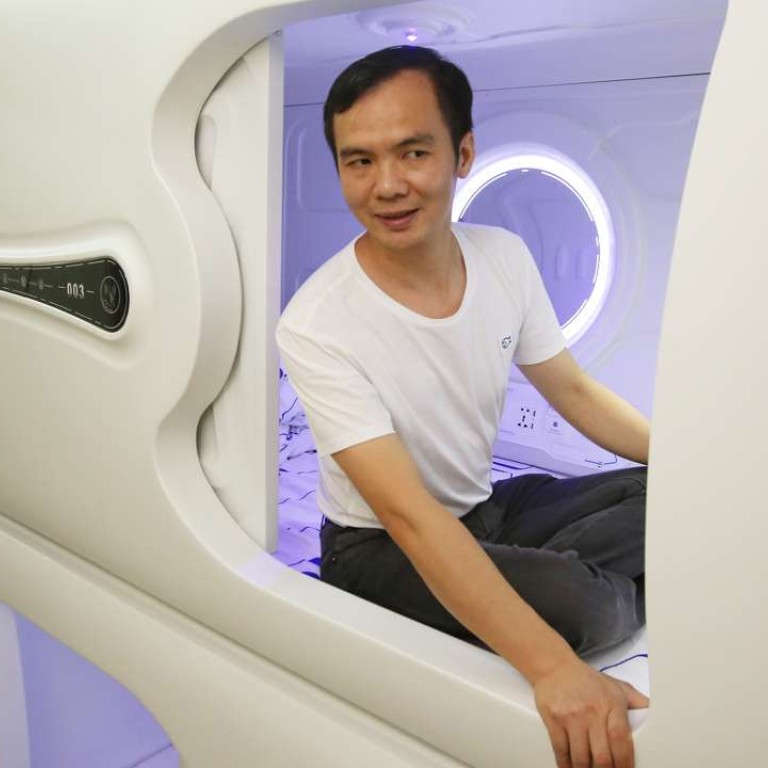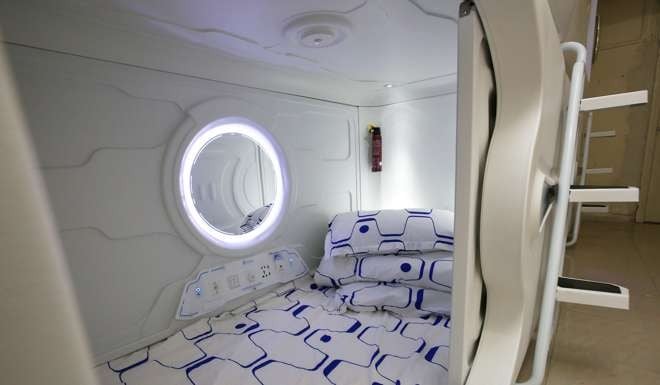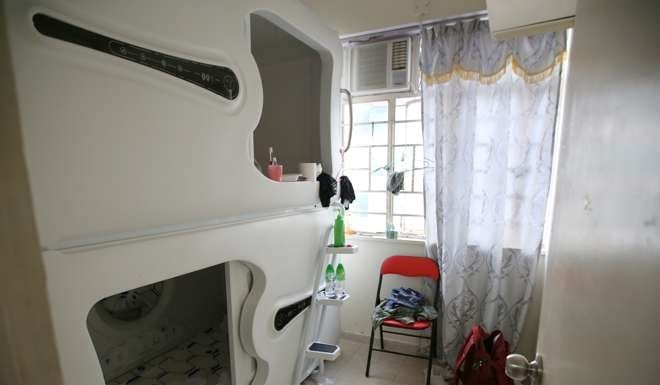
Hong Kong landlord launches ‘space capsule’ homes for rent
Entrepreneur ‘overwhelmed’ with response to the Japanese-style bed spaces, which tenants can rent for up to HK$4,500 a month, and plans to open 1,000 more in a year
A single-sized bed space with key-card access, air-conditioning and dreamy blue lighting – this is a five-star upgrade from the city’s notorious coffin homes for rent.
Over the span of three months, entrepreneur Sandy Wong has rented out 51 “space capsule” pods in six apartments across the city, with ambitious plans to rent out 1,000 more units in a year.
The pods, a modern twist on the capsule hotel concept which originated in Japan, are leased out for between HK$2,800 and HK$4,500 for a minimum one-month stay, with lodgers sharing a kitchen, bathroom and common area.

A 700 sq ft apartment can fit a maximum of 10 pods.
Wong, keen to take advantage of the city’s lucrative property market, noticed a gap that had yet to be filled. “So many people in Hong Kong are living in cubicle homes or partitioned flats, but the conditions are really bad. There’s no proper ventilation, the places are infested with bugs and they smell,” Wong told the Post.
“I thought to myself: ‘Is there a way to provide a more comfortable space for these people?’”

Almost 200,000 people lived in 88,000 subdivided units last year, according to a Census and Statistics Department report. About 57,100 households were squeezed into areas of 75 to 140 sq ft.
Manytolerate such conditions because they need to live close to their workplace. About 60 per cent of Hong Kong’s working population, or 2.27 million people, do not work in the same district they live in, according to 2011 census figures.

The monthly rent for a pod is higher than a coffin home equivalent in Sham Shui Po, which costs around HK$1,800, but lower than a subdivided flat that comes with an individual kitchen and bathroom, Wong said.
The response has been overwhelming, he said. The 10 capsules in the first apartment he put up for rent were all snapped up in 15 days.
Wong is confident of breaking even in the next three months. Having invested HK$700,000 in the business, he now makes a profit of HK$120,000 a month as a landlord.
However, the launch of his business did not come without hiccups. Initial media attention on the capsule homes and fire safety concerns prompted visits from several government departments.
Subdivided flats and cage homes often fall into a legal grey area. Due to difficulties in obtaining a warrant to enter private premises, authorities have struggled to prosecute landlords who rent out flats with modified internal structures that do not adhere to fire safety regulations.
Wong said that visits from the Home Affairs Department, the Fire Services and even the police all came to nothing, proving he was running a “perfectly legal and safe” business.
“It’s a worthwhile investment and there definitely is a market here,” Wong said.

